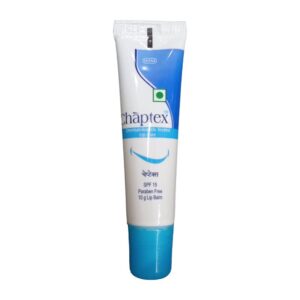D-PANTHENOL + TOCOPHEROL ACETATE
D-Panthenol: D-Panthenol is a medication that is primarily used topically to treat skin conditions such as dry or irritated skin, minor cuts, burns, and abrasions. It is a derivative of vitamin B5, also known as pantothenic acid.
D-Panthenol works by penetrating the skin and converting into pantothenic acid, which is an essential component in the synthesis of coenzyme A. Coenzyme A is involved in various metabolic processes, including the production of energy and the synthesis of fats, cholesterol, and steroid hormones. By providing pantothenic acid, D-Panthenol helps to support the skin’s natural regeneration process and promote healing.
D-Panthenol is available in various formulations, including creams, lotions, ointments, and sprays. The exact dose and frequency of application may vary depending on the specific product and the severity of the skin condition. It is important to follow the instructions provided by the healthcare professional or stated on the product label.
D-Panthenol is generally considered safe when used as directed. However, it may cause mild side effects such as skin irritation, redness, or allergic reactions in some individuals. If any adverse reactions occur, it is recommended to discontinue use and consult a healthcare professional.
It is important to note that while D-Panthenol is commonly used topically, it can also be found in some oral supplements and cosmetic products for hair care. These different formulations may have varying uses, mechanisms of action, and potential side effects. It is recommended to consult a healthcare professional or read the product information carefully before using any specific D-Panthenol product.
Tocopherol Acetate: Tocopherol acetate, also known as vitamin E acetate, is a synthetic form of vitamin E. It is commonly used as a dietary supplement and as an ingredient in skincare products due to its antioxidant properties. Tocopherol acetate is a fat-soluble vitamin that is essential for the proper functioning of the body.
In terms of its mechanism of action, tocopherol acetate exerts its antioxidant effects by scavenging free radicals and protecting cells from oxidative damage. Free radicals are unstable molecules that can cause damage to DNA, proteins, and lipids, leading to various diseases and aging-related conditions. By neutralizing these free radicals, tocopherol acetate helps to reduce the risk of cell damage and inflammation.
The recommended dose of tocopherol acetate varies depending on the individual’s age, sex, and specific health condition. As a dietary supplement, the usual adult dose for vitamin E is around 15 mg to 1000 mg per day, taken orally. However, it is always advisable to consult a healthcare professional for personalized dosage recommendations.
The side effects of tocopherol acetate are generally rare and mild when used within the recommended dosage range. However, in high doses, it may cause gastrointestinal disturbances such as diarrhea, nausea, and stomach cramps. Additionally, some individuals may experience allergic reactions, skin rashes, or headaches. It is important to note that excessive intake of vitamin E through supplements may increase the risk of bleeding in certain individuals, especially those on blood-thinning medications.
Overall, tocopherol acetate is a widely used supplement and skincare ingredient that provides antioxidant protection against free radicals. However, it is important to follow the recommended dosage and consult a healthcare professional if you have any specific concerns or medical conditions.

